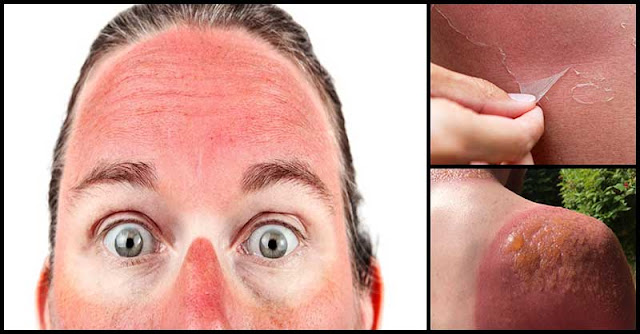During the summer months, many people usually suffer from sunburn. It occurs due to lengthy exposure to the sun. Some of its symptoms are:
- Redness of the skin
- Swelling
- Itchiness or tenderness
- Sensitive to touch
- Skin that’s hot or warm to the touch
For you to know, too much sunburn can do more than just turning your skin brown or red. It may lead to flu-like symptoms and other symptoms like sun poisoning, a super severe sunburn that has systemic effects and can increase your risk of skin cancer.
Symptoms Of Sun Poisoning
Feels like You Have The Flu
You might be suffering from sun poisoning if you experience flu-like symptoms after a long day in the sun.
John Anthony, MD, a dermatologist at Cleveland Clinic in Cleveland, Ohio says that:
“When the skin is damaged by UV rays, it releases chemicals that basically turn on the immune system and make you feel terrible like you’ve got the flu”
Feels Ill
If you feel ill or have a fever or chills once you are out of the sun then this could be a sign that something is not right with your body. It would be better if you see or call a doctor.
Skin Blisters
Another symptom of sun poisoning is blisters. Aside from the pain associated with blisters, the person affected is also at higher risk for infection since bacteria and germs can possibly get into the wounds. Visit a doctor if you have severe blistering.
Feels Dizzy Or Lightheaded
Because of too much sun exposure and dehydration, you may experience headache, nausea or might vomit.
Skin Prickles
Is your body covered with prickly sensation or is it hard for you to put on your shirt because it brushes against your skin? Then, this could be a sign of a severe sunburn.
Terrible Burns
Accidentally falling asleep in an entire afternoon under the sun may terribly burn your skin, especially if it is unprotected.
Dr. Anthony further added:
“I usually see sun poisoning in people who fall asleep in the sun and then get burned terribly.”
Treatment For Sun Poisoning
There are ways wherein you can reduce the pain or discomfort associated with sun poisoning. These include the following:
- Avoid scratching your sun rash or popping blisters
- Drink adequate amount of fluids to rehydrate your body and take a rest.
- Gently exfoliate the peeling skin
- Soothe the affected area by applying aloe vera gel or taking a cool shower or applying a cold compress.
- Avoid additional sun exposure.
How To Prevent Sun Poisoning?
- Apply a sunscreen with at least 30 SPF about 30 minutes before going out. Make sure you re-apply every two hours and every time you get out of the water.
- A cloudy beach day can still cause sunburn and could potentially turn into sun poisoning. Wearing sunscreen is still necessary.
- Avoid too much exposure from the sun by covering exposed skin with clothing, wearing a hat, or staying in the shade where possible.
- Avoid the mid-day sun, go to the beach early in the morning or later on the afternoons.
- Pay special attention to children because they are more prone to sun-poisoning.









